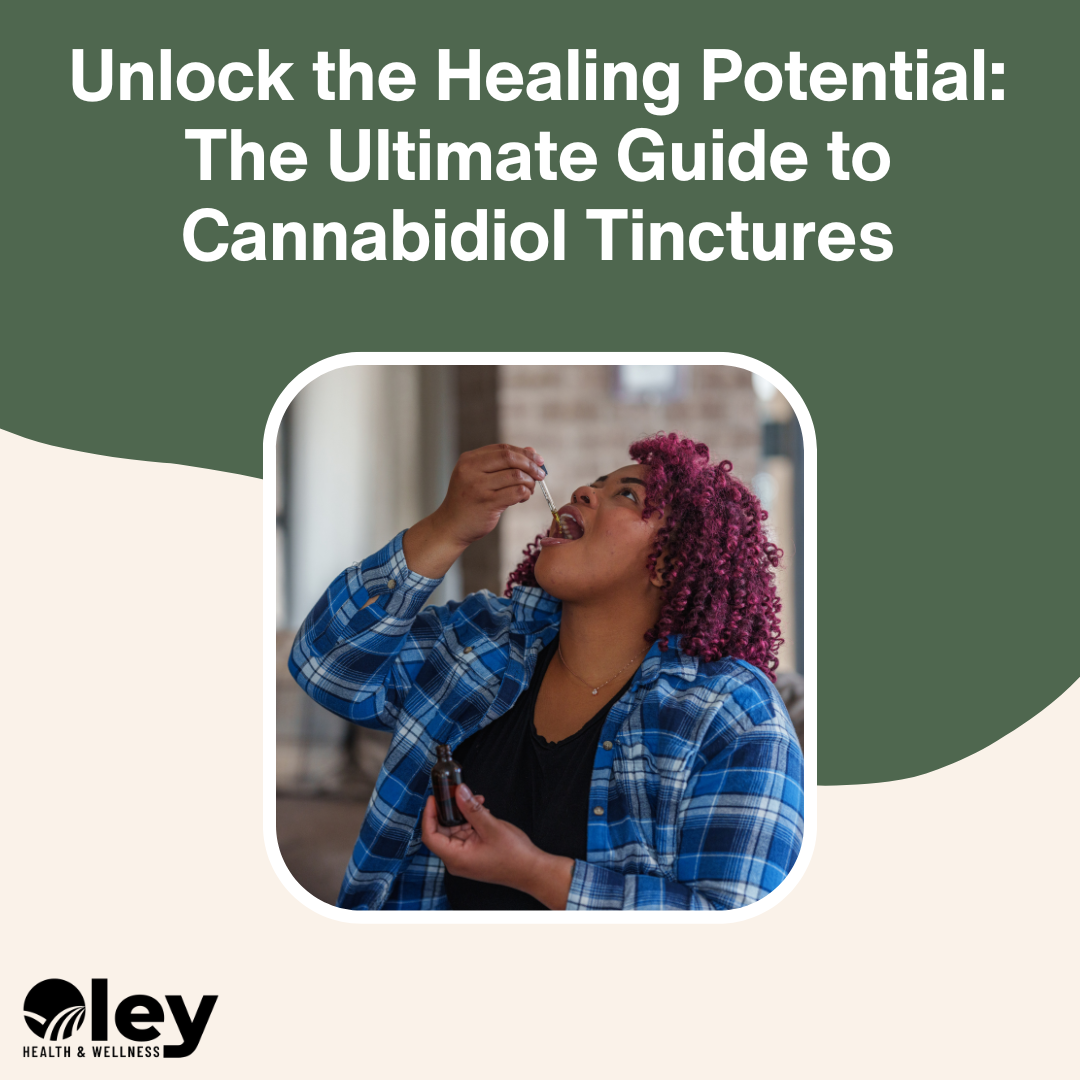From stress relief to pain treatment, people have been using CBD to treat today’s common ailments. It’s one of the most popular treatment options that scientists are exploring to help us live better and healthier.
One particular area of research that’s growing is CBD’s role in strengthening our immune system.
Since prevention is better, and cheaper, than cure, researchers are trying to understand how CBD might help our immune systems and protect us against chronic diseases.
It’s still in the early days but our team at OleyHemp did a round-up of the most recent scientific findings to see what CBD’s future benefits might be for our immune systems. Here are our findings.
What does the immune system do?
The immune system is the body’s primary defense mechanism against harmful organisms that make us sick. This network of organs, cells, and proteins locates invaders that enter our body from the outside as well as abnormal, dangerous changes that occur inside our body.
The invaders usually fall into 4 categories: bacteria, viruses, fungi, or toxins produced by microbes.
Whenever the foreign invaders, also known as antigens, enter our body, they attach themselves to special threat-detecting sensors on our white blood cells. Our immune system cells study the antigens, and begin developing techniques to fight them.
They then store all this information so that the next time they encounter the same antigen, they can mount a quicker and more effective attack response.
Sometimes, our immune system mistakes other cells in our body as foreign invaders. This may happen when harmless, healthy cells are caught in the crossfire between actual antigens and responding white blood cells.
When our own healthy cells are killed by our immune system, we experience what is known as an autoimmune response. This can progress into an autoimmune disease like lupus and thyroid disease.
How does the endocannabinoid system work with our immune system?
Our endocannabinoid system (ECS), known for regulating our emotions, pain sensation, and motor learning, is closely linked to our immune system. They work together to help our bodies maintain a stable internal state called homeostasis. Without this balanced internal state, we would be continuously sick in the face of outside environmental influences.
Our ECS is present in almost all parts of our body through a network of cannabinoid (CB) receptors. These CB receptors monitor everything that’s going on in our bodies.
Say for example that you get a cut and white blood cells flock to the damaged area to repair and protect the injury. The immune system cells purposefully cause the area to get inflamed to block foreign invaders from entering the body.
The CB receptors, present on the white blood cells themselves and surrounding tissues, control the progress of the repair and inflammation. Once the CB receptors deem that enough repair work is done, they bind with cannabinoids and direct the cells to reduce inflammation.
There are two main types of CB receptors in our body: the CB1 and CB2 receptors. CB1 receptors are generally found in the brain while CB2 receptors are active in the immune system, central nervous system, peripheral nervous system, and on white blood cells.
How are cannabinoids in hemp related to the body’s endocannabinoid system?
Hemp contains two phyto-cannabinoids (cannabinoids that are present in plants) that are recognised by our bodies’ ECS as endocannabinoids. They are tetrahydrocannabinol (THC) and cannabidiol (CBD), two of the most well-known phyto-cannabinoids that are touted to have health benefits for our bodies.
These phyto-cannabinoids can mimic the behavior of endocannabinoids in our bodies. They can interact with white blood cells and other parts of our immune system just like endocannabinoids produced by our bodies do.
THC is the more psychoactive of the two, and works well with both CB1 and CB2 receptors. It’s the compound that makes us high.
CBD, on the other hand, interacts indirectly with CB1 receptors and has been observed by researchers to counter the psychoactive effects of THC.
How can CBD help your immune system?
CBD may help replenish clinical endocannabinoid deficiency
Using and consuming products with CBD may help treat conditions caused by clinical endocannabinoid deficiency, a situation where the body does not produce enough endocannabinoids to keep internal systems stable.
Researchers believe that low amounts of endocannabinoids in the body could cause difficult-to-treat conditions like migraines, fibromyalgia, and irritable bowel syndrome.
To remedy these ailments, they studied whether CBD from hemp and cannabis could act as endocannabinoid supplements since it mimics endocannabinoids found in the body.
Studies conducted so far show that CBD from plant sources have potential to replenish low endocannabinoid levels in the body and remedy ailments related to the condition.
It may help kill stubborn bacterial infections
A study conducted in 2019 discovered that CBD has the power to kill bacteria. Researchers tested CBD against strains of streptococcus, the strep throat bacteria, and staphylococcus, a bacteria that causes skin infections, and found CBD to have the same potency against these bacteria as common antibiotics.
The CBD killed the bacteria very quickly, in just under 3 hours. But it was only effective against gram-positive bacteria, which cause serious conditions like skin disease and pneumonia. Researchers found that CBD had very little effect against gram-negative bacteria like salmonella and E. coli.
What was most interesting according to the scientists was the CBD’s ability to disrupt the biofilm around bacteria that have historically defended these microbes against most antibiotics. The biofilm usually makes it harder for antibiotics to penetrate the bacteria and kill them.
These findings suggest that CBD might not prompt bacteria to evolve and develop better resistance against it. Scientists believe that if CBD is used in conjunction with other antibiotics, it could help reduce antibiotic resistance in bacteria and increase the effectiveness of antibiotics.
CBD may help fight viral hepatitis C
Recent studies suggest that CBD may help inhibit the hepatitis C virus in patients. Hepatitis C is a disease that causes severe liver damage, which often results in liver cirrhosis and cancer. At the moment, there is no vaccine for hepatitis C.
Researchers found that when CBD was introduced to the hepatitis C virus in vitro, it inhibited the virus but did not cause damage to the infected cells. CBD may not release toxins as it engages with the hepatitis C virus, which could therefore mean that it does not produce much harm to humans.
CBD also showed promise in reducing inflammation in patients with autoimmune hepatitis C. But the findings are inconclusive at the moment. Other studies have shown that long-term CBD use could cause hepatitis C virus cells to replicate and cause further deterioration of the liver.
It may help suppress autoimmune responses and cytokine storms
Researchers have found that in some viral studies, CBD can suppress the immune system and compromise its ability to respond to foreign pathogens. It’s believed that CBD turns off the cannabinoid receptors of the body’s endocannabinoid system, which serves a crucial function of controlling the immune system’s functions.
What results is an ineffective immune system response. Using this finding, researchers tested CBD’s effectiveness against autoimmune diseases and harmful immune system responses.
They tested CBD on rodents with multiple sclerosis, an autoimmune disease, and discovered that the CBD impaired many enzyme systems that produce inflammatory and antiviral responses. The CBD treatment helped calm the immune system and provide pain relief.
Another study showed that CBD can activate the endocannabinoid system and help inhibit pro-inflammatory cytokine production. This condition, also known as a cytokine storm, happens when the body releases a harmful amount of infection-fighting cytokines into the bloodstream too quickly.
Usually the cytokines would help the body mount an immune system defense, but when too much is released, the body experiences multiple organ failure, shock, and even death.
A group of scientists tested CBD’s effects against cytokine storms in patients with COVID-19-related lung destruction. They found that CBD might help reduce the cytokine storm and even help the lungs recover from the severe inflammation.
The study which was conducted on rats also found that after CBD was administered in response to the cytokine storm, oxygen levels were restored in the hosts. Scientists believe the CBD could be used to help prevent harmful autoimmune responses like cytokine storms from happening in COVID-19 patients.
The future of CBD and the immune system
The early promising results of CBD in treating and preventing some bacterial and viral infections has generated great consumer interest in CBD products. People are looking for natural immune booster solutions to protect themselves against diseases, and CBD is looking like it could fit the bill.
From CBD tinctures packed with fatty acids, antioxidants, and pepsin to immune boosting CBD capsules, various CBD-infused products are currently being developed to meet this demand.
But the products are still in their early days and more research has to be conducted to prove their efficacy. Most information currently available on CBD’s immune-boosting benefits is anecdotal, provided by patients with chronic diseases and autoimmune disorders.
As the taboo around CBD gets chipped away slowly, we can expect to see more data-heavy evidence of the substance’s effects. CBD is still an illegal substance in most countries, which limits the amount of research that can be conducted to test its medical benefits. But researchers are continuing to build on past studies in the hopes that CBD could be a new treatment option for difficult to cure diseases.
OleyHemp’s products can improve your wellness
OleyHemp is a leading provider of high-quality CBD-infused products that deliver wellness benefits to help our customers live healthier lives. We maintain a regular blog on the uses of CBD and up-and-coming CBD industry trends to help our customers stay abreast of CBD news.
We offer personal care products like CBD tinctures with 3100mg of high-potency hemp oil that can help boost wellness. Visit our website to see more of our products and follow our work.






